PUBLIC RIGHTS PROJECT REVEALS HANDY’S MISCLASSIFICATION OF THEIR WORKERS CONTRIBUTES TO RAMPANT UNADDRESSED SEXUAL HARASSMENT ON THE PLATFORM
Chilling incidents of harassment met by silence from the home services platform
OAKLAND, CALIF. (September 10, 2020) – Public Rights Project sheds light on Handy, an online home services marketplace, for ignoring sexual harassment claims filed by their misclassified and unprotected gig workers.
In the case submitted to the California Department of Fair Employment and Housing, Handy is shown to have misclassified its workers, ignored sexual harassment claims and left workers to fend for themselves to protect the most basic of human needs: safety and security. This exploitation disproportionately affects the women of color who make up the majority of in-home workers.
“Handy has been ignoring reports of harassment for too long, and California law makes the company’s inaction illegal,” said Jill Habig, Founder and President of Public Rights Project. “Handy has set up an exploitative system that intentionally leaves its workers vulnerable to abusive customers. But under AB 5 and other California laws, Handy is operating illegally to profit at the expense of its unprotected house cleaners and home maintenance workers.’”
Habig founded the nonprofit Public Rights Project to address issues exactly like this one: Even though laws exist on the books to prevent Handy’s exploitative practices, governments need support to enforce existing laws to protect the most vulnerable.
Handy, founded in 2012, is a subsidiary of ANGI Homeservices and provides “on demand” cleaning, furniture assembly, electrical and construction “handyman” work ordered through an app that dispatches its “pros” to customers' homes.
“Handy’s business model relies on improperly classifying its workers as independent contractors,” said Jenny Montoya Tansey, PRP’s Policy Director. “This deprives workers of benefits and protections they would be entitled to as employees, such as workers’ compensation, paid sick leave, and protections against discrimination.”
The case submitted to the Fair Employment Department shows with real examples of how sexual harassment is far too common, and complaints about these incidents go unanswered. Public Rights Project spoke with 25 Handy workers in California as part of a research project on misclassification in the home services industry. Of the people interviewed by Public Rights Project, 42 percent reported having experienced unwelcome sexual advances, requests for sexual favors, or non-consensual physical contact on the job.
While we are keeping some of their identities private for their protection, the worker stories that appear in the complaint are chilling:
Patti Cris, Worker 1, was greeted by a fully naked customer when she arrived at a cleaning appointment. She left and reported it immediately to Handy through the app. The company’s response was to deduct $15 from her pay for leaving the harasser’s residence early. Handy never provided any response to her report of harassment and refused to reverse the fee.
Worker 2 was asked by a cleaning customer to wear a revealing outfit to future appointments. When she reported this to the company, she was informed that “they had no control over what their clients wanted, and it was up to [the worker] to decide what was acceptable.”
Worker 3 was offered money for sex by a Handy customer. When the worker suggested he might call the police in response to the proposition, the customer said he would complain about the worker to Handy and would refuse to pay for four days of work. The worker reported the harassment to Handy and received a follow up email asking for a recording or pictures to support his allegations, which he didn’t have. He never received further follow up from Handy.
“Handy disregarded the seriousness of these allegations,” said Habig. “None of these workers were interviewed by the company about their allegations, nor did they receive any notification of an investigation of their report being concluded or any corrective action being taken. If Handy workers were properly classified as employees, the company would have legal and financial incentives to ban harassers from the platform and keep their workers safe.”
Handy, unlike other gig companies, also has no rapid response system in place to handle reports of worker safety issues like sexual harassment and assault. Its policies penalize workers for taking steps to protect themselves from harassment, disincentivize reporting of sexual harassment complaints, and put workers in situations where the power dynamic permits abusive behavior to persist unabated.
You can read the full case now on Medium.
###
About Public Rights
Public Rights Project is a national non-profit, based in Oakland, that builds state and local governments’ capacity to enforce their residents’ rights. Their mission is to close the gap between the promise of our laws and the lived reality of our most vulnerable communities. They work to achieve this mission by training attorney fellows to catalyze the proactive work of government law offices; providing strategic support in legal strategy, research, partnerships and data analytics to help offices develop high-impact legal cases; and designing and spreading community outreach and organizing approaches that empower community residents and advocates to be active partners in an enforcement agenda rooted in equity. Public Rights Project is a project of the Tides Center, a 501(c)(3) nonpartisan nonprofit organization.
For more information:
Web: https://www.publicrightsproject.org/
Twitter: @public_rights
Medium: @publicrightsproject
Instagram: #publicrightsproject
Media Contact:
Madison Jacobs, madison@publicrightsproject.org





